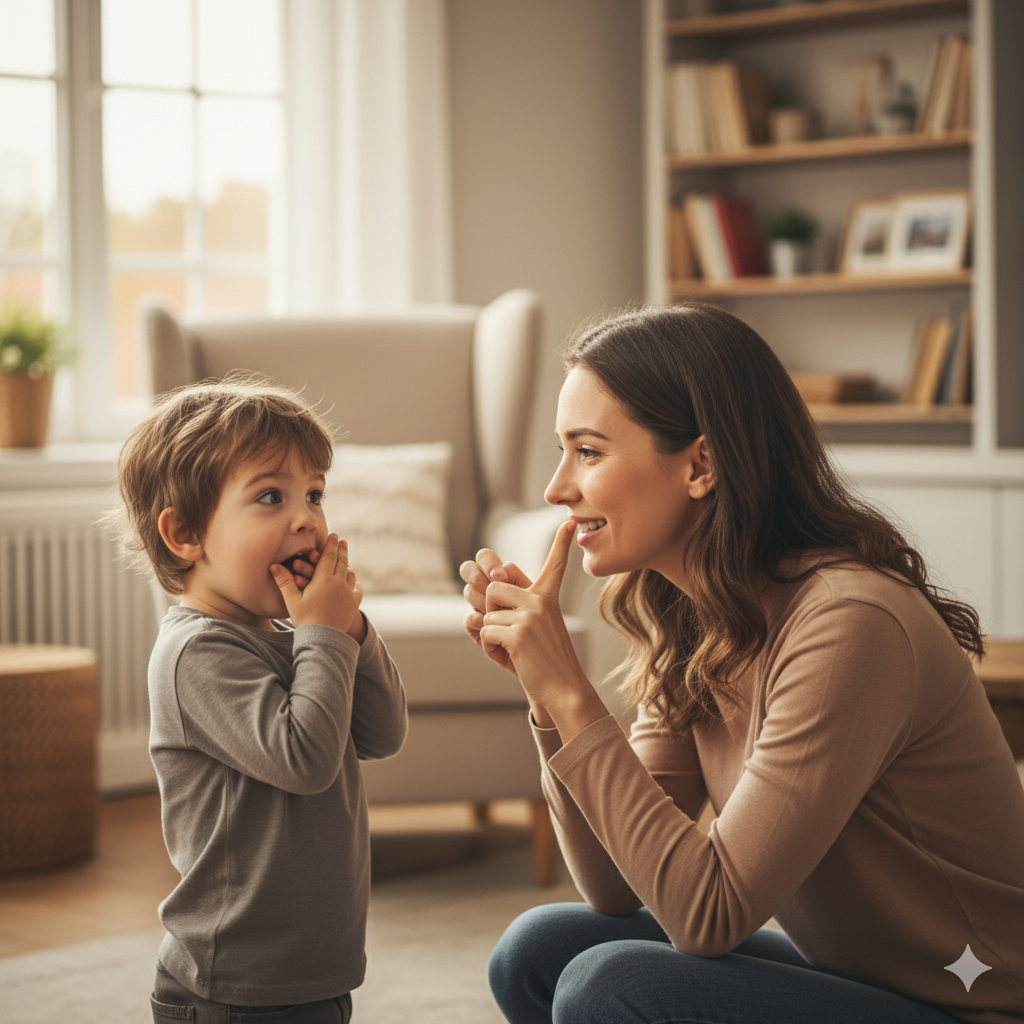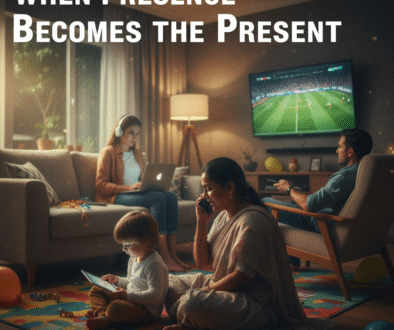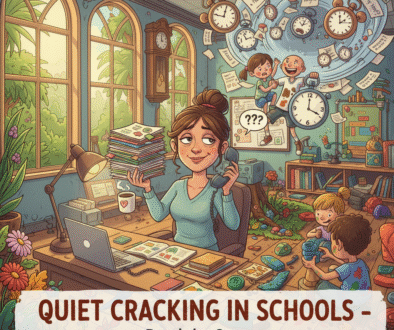
Before You Laugh at Your Child’s Bad Word, Remember Who Taught It
The Word We Don’t Say
Ah, childhood memories. I still remember the day I came home from kindergarten proudly announcing my new vocabulary: “kurwa.” The Polish curse word so famous it could easily qualify as our national export. My mother froze. For a moment, she tried diplomacy. “That’s a bad word,” she said gently. “Please don’t say it again.”
But little me? I thought it was hilarious. So, of course, I said it again.
SMACK.
Before I could even blink, my mother’s hand met my cheek—not hard, just sharp enough to shock me. “This,” she said with the gravity of a life lesson, “is how it feels to hear that word coming out of your mouth.” Let’s just say the message landed.
My parents were always intentional about what they said around us. Swearing was completely off-limits. Even in their moments of frustration, they would bite their tongues, modeling restraint and self-awareness. That day was dramatic, yes—but what truly stayed with me wasn’t the slap. It was their consistency.
Fast-forward to adulthood. I’ll admit, there are days when a well-timed kurwa is exactly the kind of therapy I need. There’s something undeniably satisfying about it. But I keep it far away from little ears, because I’ve learned how deeply children absorb the world around them.
As a mother and teacher now, I see it every day. My husband and I are deliberate about the environment we create. I’ve never heard him use inappropriate words in front of our kids—or anyone, for that matter. Our grown-up children don’t either, and I’d like to think it’s because they never grew up hearing them.
Children are the world’s greatest copycats. They don’t just mimic you—they become you. Every word, tone, and reaction is recorded in their developing minds, waiting to be replayed at the most inconvenient times. That toddler who shouts road-rage insults during playtime or the kindergartner who drops an F-bomb in front of the teacher isn’t trying to shock anyone. They’re just playing back what they’ve seen and heard.
We often laugh at these moments. A little one mimicking our frustrations feels funny—until you realize it’s not comedy. It’s apprenticeship. They’re not clowns; they’re students of our behaviour.
And now, with social media turning every private moment into potential content, these incidents have become viral entertainment. Parents proudly post videos of their kids swearing or mocking others with captions like, “Where do they even get this stuff?!” Well—from you.
By laughing, recording, and sharing, you’re not just indulging a cute moment. You’re teaching three very real lessons: that words don’t have consequences, that it’s fine to make fun of others if people laugh, and that attention is more valuable than respect.
Parenting, in truth, isn’t a performance. It’s a quiet, invisible job with no filters, no applause, and no reels. The real work happens when nobody is watching. So, the next time your child says something inappropriate or mimics an attitude that makes you cringe, pause. Ask yourself—am I okay with this becoming a habit? Would I still laugh if they did this in school? Is this how I want them to treat others—or be treated?
If any answer is no, that’s your cue to set a new tone.
Not every funny moment deserves applause. Teach your child that humor has context, that kindness can be cool, and that respect always wins. Lead by example—because they’ll remember more of what you do than what you say. Praise their creativity, courage, and compassion more than their cheekiness. Let those be the memories they grow up proud of.
Because at the end of the day, your child is your mirror. The way they speak, act, and treat others is a reflection of the environment you’ve built for them.
So, when your little one drops their first “forbidden” word, take a breath before you laugh. One day, that same child will be old enough to record you.


